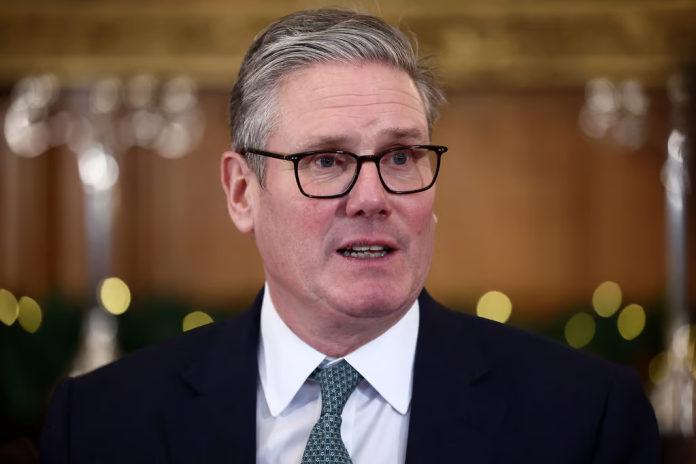UK Prime Minister Keir Starmer is facing growing calls to commit to higher defence spending as he prepares for a pivotal meeting with US President Donald Trump next week, according to The Independent.
The pressure comes amid concerns over the UK’s reliance on American support for European security, particularly in the wake of Trump’s negotiations with Russia over Ukraine.
Starmer, the only major UK party leader yet to endorse a target of spending 2.5 per cent of GDP on defence by 2030, is under scrutiny to demonstrate that the UK and its European allies are serious about bolstering their own defence capabilities. He pledged a pathway towards increasing defence spending from the current 2.3 per cent of GDP to 2.5 per cent, but stopped short of guaranteeing the target would be met within the next six years.
Push for immediate action
Ed Davey, leader of the Liberal Democrats, joined other prominent figures, including Kemi Badenoch and Nigel Farage, in urging Starmer to accelerate the increase in defence spending. Davey warned that Trump’s recent dealings with Russian President Vladimir Putin represent a “betrayal of Ukraine, the UK, and all our allies,” and called for a robust response to the evolving global threats.
It is clear: we are living in a new and dangerous world. We must respond.
However, meeting the 2.5 per cent target would require an additional £6 billion annually, a significant sum that has sparked debate over how to fund the increase without resorting to unpopular tax hikes or spending cuts. Chancellor Rachel Reeves hinted at the need for “difficult choices” to prioritise defence spending, emphasising the importance of a strong economy underpinned by robust national security.
Reeves reiterated her commitment to achieving the 2.5 per cent target but stressed the need for a “proper pathway” to reach it.
Recognising the priority of defence spending in the world that we live in today means that we will have to make difficult choices so that we can spend that money that is needed to keep our country safe.
One potential option being considered is freezing income tax thresholds beyond 2028. However, such a move would effectively raise taxes by dragging more earners into higher tax brackets due to inflation. The approach could be justified as a necessary measure in an increasingly volatile global landscape.
Defending Europe
During his upcoming visit to Washington, Starmer is expected to present Trump with a peacekeeping plan involving fewer than 30,000 European troops deployed to Ukraine. The proposal, developed as part of an Anglo-French strategy, was discussed at an emergency meeting in Paris earlier this week.
The so-called “reassurance force” is designed to stabilise the region in the event of a ceasefire, though Trump has ruled out any US involvement in such operations.
Starmer has argued that a US “backstop” is essential to deter Russia, but Trump’s reluctance to commit to ongoing support for Ukraine has complicated efforts to secure a lasting peace.
Meanwhile, former NATO Deputy Supreme Allied Commander Europe, General Richard Shirreff, called for even more drastic measures to prepare for potential conflict with Russia. In a stark warning, Shirreff advocated for the reintroduction of conscription, suggesting that around 30,000 Britons should be drafted annually to bolster the UK’s armed forces.
He also urged the government to expand the army to 100,000 personnel and strengthen air defence systems protecting major cities such as London, Manchester, and Edinburgh.
Shirreff stressed the need to arm Ukraine sufficiently before considering the deployment of any peacekeeping force. His comments reflect a growing sense of urgency among defence experts about the need for the UK to prepare for a more confrontational global environment.
